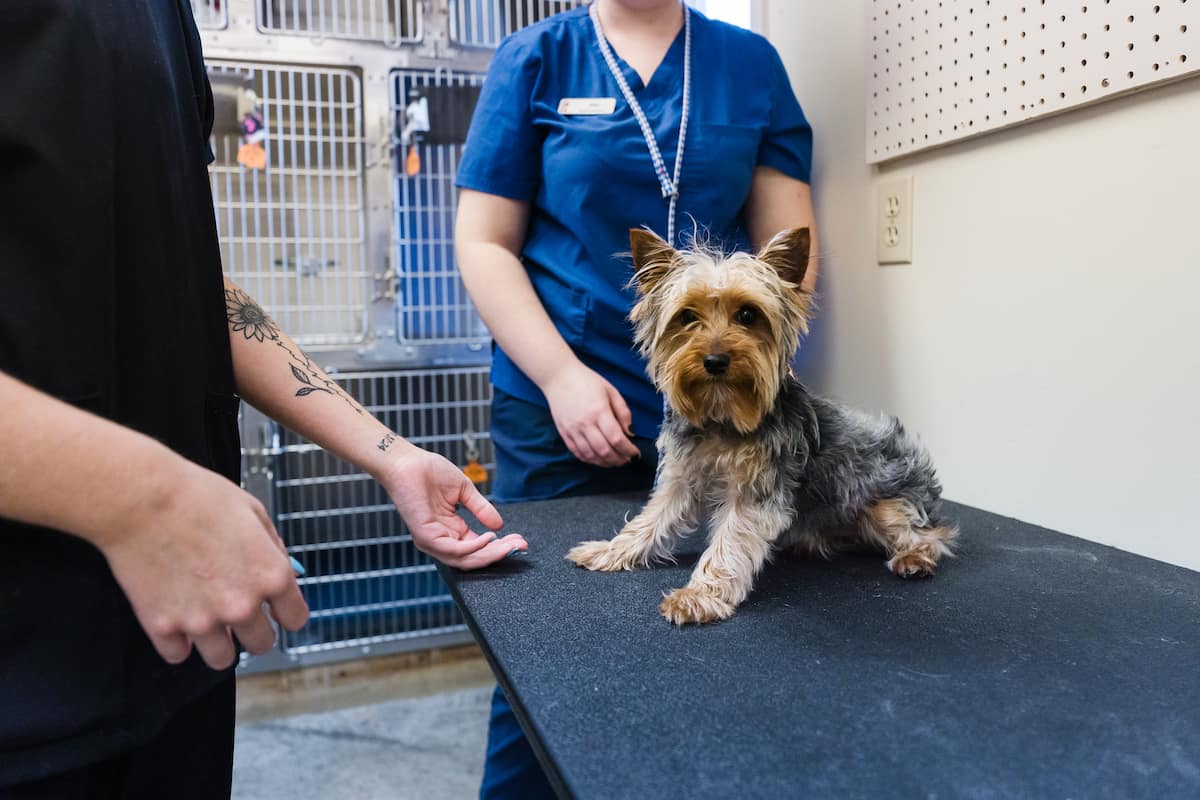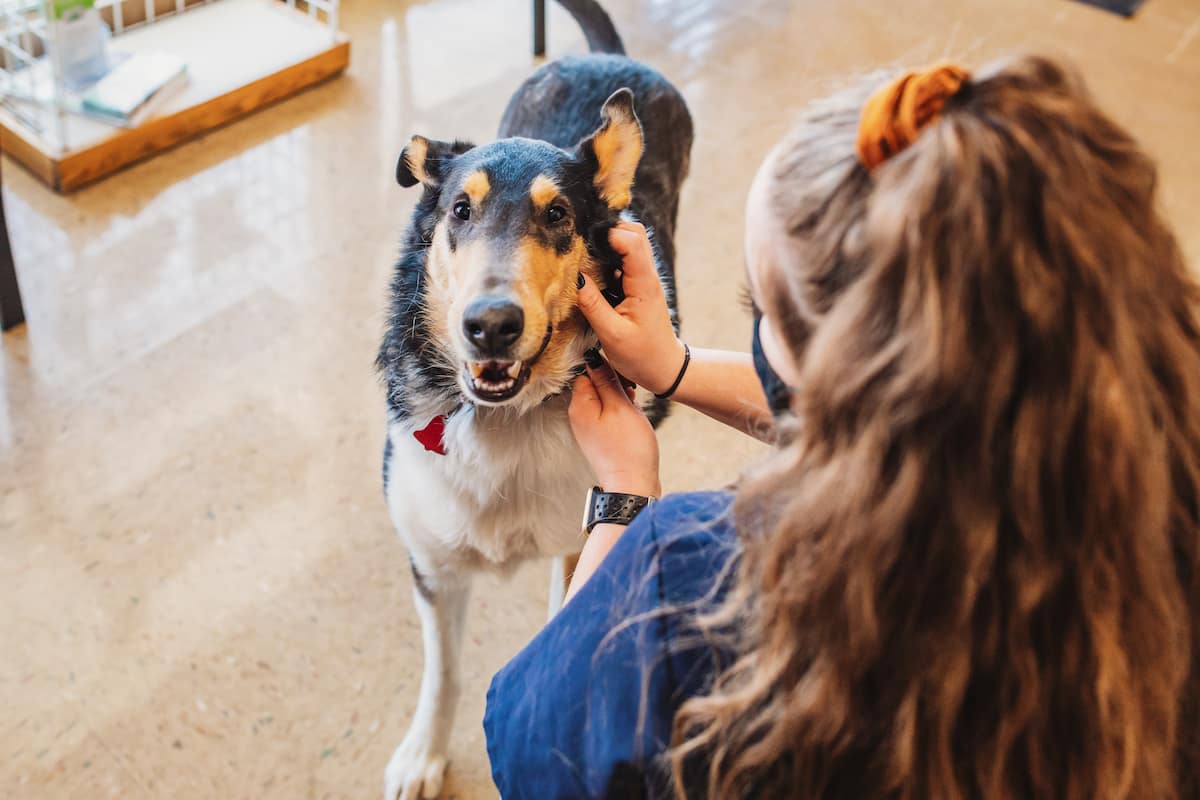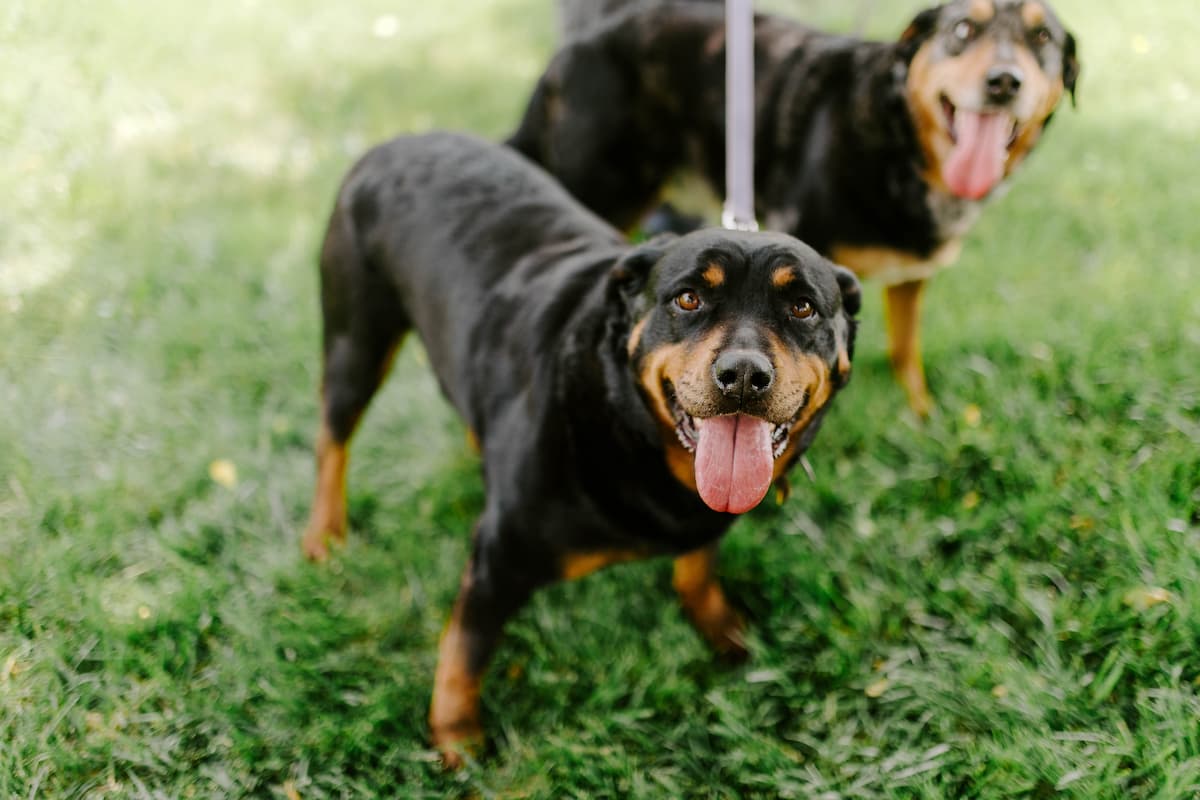$25 Off First Wellness Exam!
(901) 853-8519
New clients will receive $25 off their first wellness exam! Mention this coupon to receive your discount.
*Discount forfeited if you miss your appointment without calling us ahead of time to reschedule.
Complete Wellness Care in Collierville, TN
Routine wellness exams are a critical part of your pet’s healthcare routine to maintain their well-being and detect any medical issues before they progress. During your pet’s wellness exam, we will conduct an in-depth nose-to-tail examination and advise you on all aspects of your pet's care.
Comprehensive Care
Preventative Services
Surgical Services
Diagnostics


Collierville Animal Clinic has always given me and my dog excellent service in the 10 years that we have been going there. It is quite a drive for me to get there, but I gladly pass 3 or 4 vets on the way there. All of the doctors will go above and beyond to help your pet. Also, the office staff is friendly and efficient.
Sarah L.

Highly Rated on Google Reviews!
 120+ Reviews
120+ Reviews
Pet Dentistry in Collierville, TN
Just like humans, pets require regular oral care to keep them from developing dental disease. Improper care of your pet's teeth can become very painful and eventually lead to serious illness. Our team is here to help protect your pet’s health and teach you the easy ways you can keep their teeth clean and healthy.
Preventative Care
Oral Exams
Teeth Cleanings
Extractions

Pet Boarding Services in Collierville, TN
Whether you need pet care services for a day or an extended stay, leave your pets with the experts at Collierville Animal Clinic. Our boarding facility offers your pet comfortable accommodations, personalized attention, regular exercise and endless amounts of love and relaxation. Your pet will also have access to our team of medical experts at our animal hospital in case any concerns arise during their stay. Make Collierville Animal Clinic your pet’s new favorite place to stay while you are away.
Comfortable Accommodations
Social Time & Exercise
Personalized Care

Our Story
Since our founding, our goal has been to assemble a veterinary health care team committed to providing exceptional client service and veterinary health care. The Collierville Animal Clinic team displays an unrivaled commitment to our clients through continuing education, technological advances in veterinary medicine and service, and most importantly, administering compassionate care to all pets entrusted to us. We look forward to becoming your partner in your pet's healthcare.
Book an Appointment